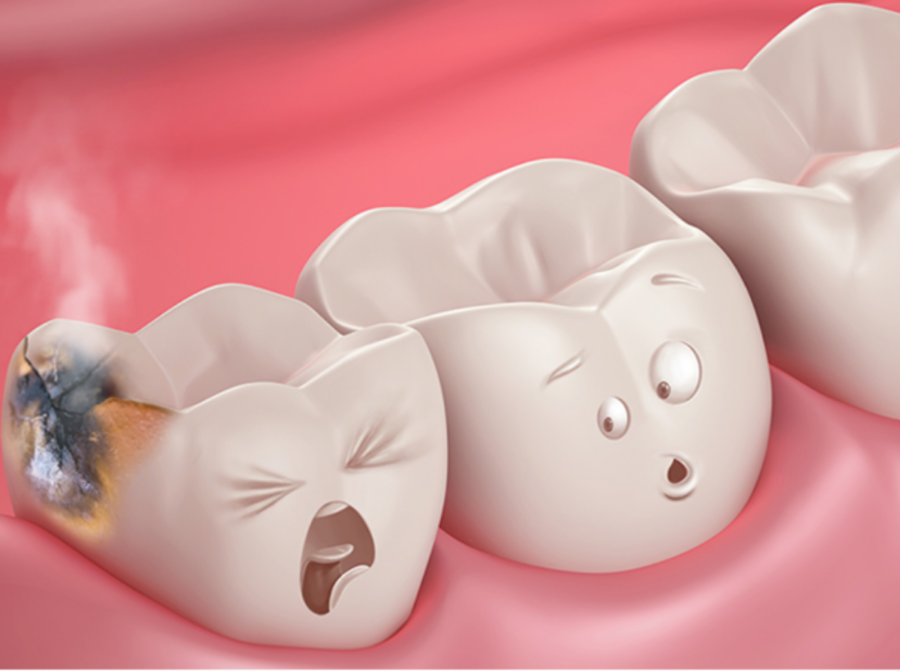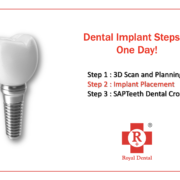Toothaches can be extremely painful and disruptive to your daily life. While there are a number of over-the-counter pain relievers that can help alleviate toothache pain, not all of them are equally effective. One common question is whether or not paracetamol, also known as acetaminophen, is an effective treatment for toothaches.
Paracetamol is a pain reliever that works by blocking the production of prostaglandins, which are chemicals that contribute to pain and inflammation. It is available over the counter in a variety of forms, including tablets, capsules, and liquids.
Unless you have a rare blood condition, paracetamol dosages of even as high as 1000 mg are not likely to cause any side effects. However, there is a catch here – most people will experience little or no relief from severe tooth pain with paracetamol. The reason for this is that paracetamol works primarily by reducing the production of prostaglandins, hormone-like compounds that trigger pain and inflammation in response to injury. For instance, when we cut our finger, a series of chemical reactions induce the production of prostaglandins which signal the brain about the pain and initiate the repair process. Paracetamol works by inhibiting cyclooxygenase enzymes (COX-1 and COX-2) which are responsible for producing these prostaglandins. When we take paracetamol, it doesn’t directly reduce the pain we feel. Then you may need to take two tablets at once.
Is Paracetamol Effective for Toothaches?
Paracetamol can be an effective treatment for mild to moderate toothaches. It is generally considered safe for most adults and children, and it does not cause as many side effects as some other pain relievers, such as ibuprofen or aspirin.
However, paracetamol is not as effective as ibuprofen or aspirin for reducing inflammation. This means that it may not be as effective for toothaches that are caused by inflammation, such as those caused by an abscess or gum disease.
Does Paracetamol Reduce Tooth Pain
Paracetamol, also known as acetaminophen, is a pain reliever that can be effective in managing mild to moderate toothaches. It works by blocking the production of prostaglandins, chemicals that contribute to pain and inflammation. However, it’s important to note that paracetamol is not as effective at reducing inflammation as other over-the-counter pain relievers like ibuprofen or aspirin.
If your toothache is caused by inflammation, such as an abscess or gum disease, paracetamol may not provide adequate relief. In such cases, ibuprofen or aspirin might be more suitable options.
How Does Paracetamol Work?
Paracetamol is also known as acetaminophen and is a widely used painkiller. It is used to treat a variety of conditions, including headaches, sprains, toothaches, back pain, etc. Paracetamol is chemically different from other painkillers and is not an NSAID. It is used for mild to moderate pain due to its relatively mild side effects. However, it has its limitations as well. Paracetamol is a good painkiller but is less effective at reducing swelling, and therefore will provide less pain relief if you have a toothache. It can, however, be effectively used in conjunction with either Ibuprofen or Aspirin.

Paracetamol works by reducing the production of prostaglandins, hormone-like compounds that trigger pain and inflammation in response to injury. It does this by blocking cyclooxygenase enzymes (COX-1 and COX-2) which are responsible for producing these prostaglandins. When we take paracetamol, it doesn’t directly reduce the pain we feel; rather, it blocks COX enzymes so that they cannot produce prostaglandins. And thus reduce the number of pain signals sent to our brain.
Is 600 mg of Paracetamol Enough For Tooth Pain?
Yes, that dose of paracetamol is safe, even if you have a low tolerance to pain medications. But if you are experiencing a severe toothache, you need something more potent than just paracetamol. As stated above, this compound works primarily by reducing the production of prostaglandins, hormone-like compounds that trigger pain and inflammation in response to injury.

That is why paracetamol is a good choice for mild to moderate pain. For instance, if you want to take paracetamol for your toothache, you’ll need to take two tablets at once: one tablet when you feel the first twinges of pain, and another one at an interval before the pain comes back.
How to Take Paracetamol for Tooth Pain?
If you want to take 600 mg of paracetamol for your toothache, then you’ll need to take two tablets at once: one tablet when you are in pain, and another one at an interval before your next bout of pain comes along. You have a 10-hour gap between the first and second dose, you’ll probably be able to sleep through the night. If you have a shorter gap between the two doses, you might want to keep a pen and paper to record the time and intensity of your pain so that you can take the next dose on time.
Can I take 1000 mg of paracetamol for my toothache?
Unless you have a rare blood condition, paracetamol (or acetaminophen) dosages of even as high as 1000 mg are not likely to cause any side effects. However, there is a catch here – most people will experience little or no relief from severe tooth pain with that dose of paracetamol. The reason for this is that paracetamol works primarily by reducing the production of prostaglandins, hormone-like compounds that trigger pain and inflammation in response to injury.

For instance, when we cut our fingers. A series of chemical reactions induce the production of prostaglandins which signal the brain about the pain and initiate repair processes. Paracetamol works by inhibiting COX enzymes so that they cannot produce prostaglandins and thus reduce the number of pain signals sent to our brains. Therefore, when we take paracetamol for a toothache, we are taking it primarily for reducing inflammation and swelling rather than for pain relief.
Which One is Better – Paracetamol or Ibuprofen?
Paracetamol and ibuprofen are both effective painkillers. However, ibuprofen has additional anti-inflammatory properties that make it a better choice for toothache. You can also take 600 mg of ibuprofen for toothache. But make sure you take it with some food or milk to avoid stomach ulcers. Ibuprofen 400 mg is superior to 1,000 mg paracetamol with a risk ratio of at least 50% pain relief at 6 hours.
When to See a Dentist
If your toothache is severe or does not improve with home treatment, it is important to see a dentist as soon as possible. They can determine the cause of your toothache and recommend the best course of treatment.
In some cases, a root canal may be necessary to treat the tooth and prevent further pain and infection.
Conclusion
Paracetamol is a widely used painkiller, but it has its limitations as well. It is used for mild to moderate pain due to its relatively mild side effects. However, it has its limitations as well. If you’re looking for a quick and easy way to relieve your pain, paracetamol may not be the best option. Instead, you may want to try some home remedies for toothache as they offer relief in a natural way.
© All rights reserved by Royal Dental Implants Pvt Ltd
Issued in public interest






